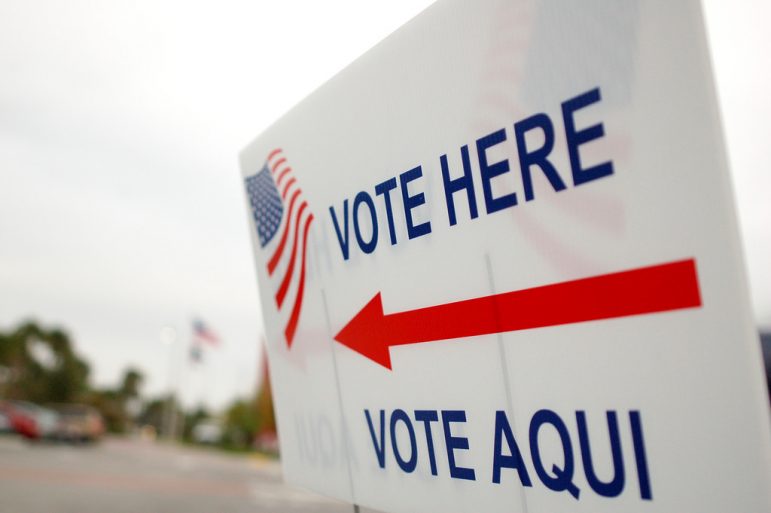An Alabama advisory committee to the U.S. Commission on Civil Rights holds its first hearing Thursday in Montgomery. It’s the first of a series of discussions looking into the ways Alabama’s voting regulations affect people’s ability to vote. There will be testimony from academics and policy makers, and members of the public will be invited to comment.
The bipartisan committee is embarking on a fact-finding mission on state voter laws. A central question is whether these laws hinder access to voting, particularly when it comes to groups that have historically been disenfranchised: women, people of color, people with disabilities, and the working poor.
Alabama’s voting regulations drew national attention in the landmark 2013 Supreme Court case Shelby vs. Holder, which challenged Section 5 of the federal Voting Rights Act. That required federal preclearance from certain states and local governments before changing their voting laws. “And in real terms the result of that was Section 5 was a portion of the Voting Rights Act that said in jurisdictions where there had been historical disenfranchisement of minority populations that all voting regulations had to be approved by the [U.S.] Department of Justice before a state can implement them,” says Jenny Carroll, chairwoman of the state committee. Shelby County challenged that and won, and Carroll says the decision encouraged states around the country to enact stricter voting laws. Since then, she says, there’s been strong interest in learning the impact these regulations have on certain populations.
A few of Alabama’s voting regulations and practices the committee will examine:
State Voter ID Law
This law requires voters to show one of 10 acceptable forms of identification when they vote. Civil rights groups say the law suppresses voter turnout for people who are less likely to have an acceptable form of ID such as the poor and the elderly, and minorities including African Americans and Latinos.
Maintaining Active Status on Voter Rolls
During the special U.S. Senate election, voters took to social media to complain they’d arrived at the polls only to discover they’d been moved to the inactive voter rolls. Alabama Secretary of State John Merrill explained his office sent postcards to all registered Alabama voters to verify their names and addresses. If the second postcard was returned to sender, election officials moved those voters to the inactive rolls. Voters at the polls were given the option of filling out a form to verify their information and cast a regular ballot, or in some cases, offered to cast a provisional ballot.
Carroll says Merrill looked into allegations of improper voter purging and will testify before the committee. “And one of the questions I think that he is going to seek to answer before the committee is one, ‘to what extent do we actually see that purging occur,’ two, ‘why did that purging occur,’ and three, ‘was it proper for that purging to occur?’”
The committee will also look into rules around absentee voting and poll hours, and whether those limit access for people including the elderly and people working two jobs or who have difficulty finding child care while they vote.
In addition to its report to the U.S. Commission on Civil Rights, committee members will compile oral histories from voters around their experiences in Alabama.
The first panel discussion will be Thursday at the Connecting Life Center in Montgomery. The committee will also accept written testimony through March. “The information we gather will help paint a fuller picture of the state of voting rights in Alabama,” Carroll says. “We look forward to hearing from experts and members of the public alike.”

